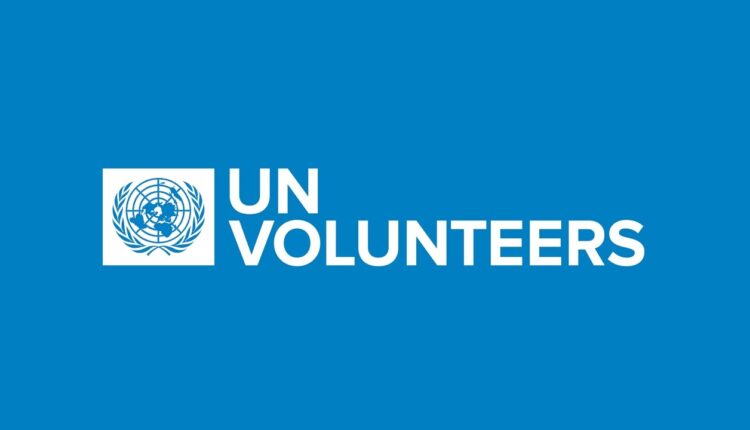Refugee Interpreters – UNV
Job Description
| Organization | United Nations Volunteers |
| Description of assignment title | Refugee Interpreters |
| Host Entity | UNHCR |
| Country | Sudan |
| Duty Station | Gedaref (5) |
| Type | Onsite |
| Start Date | 14/03/2022 |
| Duration | 10 months (with possibility of extension) |
| Volunteer category | Refugee UN Volunteer |
Details
Mission and objectives
UNHCR, the UN Refugee Agency, was established on 14 December 1950 by the UN General Assembly. The agency is mandated to lead and co-ordinate international action to protect refugees and resolve refugee problems worldwide. Its primary purpose is to safeguard the rights and well-being of refugees. It strives to ensure that everyone can exercise the right to seek asylum and find safe refuge in another State, with the option to return home voluntarily, integrate locally or to resettle in a third country (www.unhcr.org). The UNHCR operation in Sudan serves different refugee groups, including people from South Sudan, Eritrea, Ethiopia, CAR, Chad, Yemen and Syria, but also internally displaced people, asylum-seekers and stateless individuals through a network of sub- and field offices as well as its Representation in Khartoum. UNHCR focuses on the protection and assistance to these groups in close coordination with national authorities and in partnership with UN and non-UN agencies as well as the civil society.
Context
Sub Office Gedaref hosts around 200,000 refugees and asylum seekers in two refugee camps, one refugee settlement and two reception centers. About 50,000 individuals residing in Gedaref state originate from the recent Ethiopia emergency. Around twenty-six (26) locations are host to an estimated 34,000 refugees and asylum seekers residing outside refugee camps. There are six (6) main border entry points in the east (Lafa, Gulsa, Abu Gamal, Taya, Gedaref and Hamdayet) where initial screening and assistance is provided as well as transportation to the refugee camps except for Hamdayet and Village 8 where group level registration is conducted at the reception centers. The office aims to collaborate with protection actors to strengthen feedback, referral and tracking mechanism for refugees and persons of concern to UNHCR with a view to harness a whole-of-society approach in responding and finding solutions to protection issues facing them. This is a requirement under the UNHCR’s Age, Gender and Diversity Policy of March 2018, mentioning “Feedback and response” and “communication and transparency” among six areas of engagement for achieving accountability to persons of concern through an age, gender and diversity approach. As part of the Accountability to Affected Populations (AAP) framework, UNHCR SO Gedaref will ensures that all formal and informal communications from persons of concern inform protection, assistance and solutions programming, and that corrective action is taken as appropriate by all partners concerned. To this end, access to information and a two-way communication between refugees and UNHCR/protection service providers is vital to keep track of information and assistance requests. Most of the protection staff are not conversant with the languages spoken by refugees. As such, there is a need to hire interpreters to facilitate communication between refugees, asylum seekers and persons of concern with UNHCR/protection service providers.
Task description
Under the direct supervision of UNHCR staff/assigned protection focal person, the interpreter will work within UNHCR working hours (Sundays to Thursdays from 8:30 am to 5:30 pm and whenever a need arise that requires interpretation services).
The interpreter will provide simultaneous/consecutive interpretation services, either in person or via telephone during:
– All UNHCR activities where interpretation service is required
– Refugee Status Determination interviews, BID interviews, home visits and all other general protection counselling as well as verification activities undertaken by the office
– Community mobilization and outreach meetings, trainings and workshops
– Participatory assessments with refugee communities
– Meetings between the UNHCR, government and partners
Provide translation of:
– Supporting documents provided by refugees and asylum seekers
– Modifications/changes/comments made by the refugees during the interviews
– Information disseminated to refugees including notices, posters, banners
– Records of meetings with refugees
– Correspondence to the government, national/international counterparts
Under the guidance of protection focal person, interpreters will also provide additional support as is necessary, including:
– Distribution of tokens and appointment slips to persons of concern
– Coordinating seating arrangements at the premises
– Copying / laminating of supporting documents and handing over to the UNHCR staff as required
– Handing out protection intake forms and supporting persons of concern who cannot write or read to make preliminary applications to be reviewed by protection focal person
– Communicate messages from protection focal person to the refugees and other persons of concern including appointments
– Accompany UNHCR staff on missions as required
– Performs other support duties as required. Furthermore, UN Volunteers are encouraged to integrate the UN Volunteers programme mandate within their assignment and promote voluntary action through engagement with communities in the course of their work. As such, UN Volunteers should dedicate a part of their working time to some of the following suggested activities:
• Strengthen their knowledge and understanding of the concept of volunteerism by reading relevant UNV and external publications and take active part in UNV activities (for instance in events that mark International Volunteer Day);
• Be acquainted with and build on traditional and/or local forms of volunteerism in the host country;
• Provide annual and end of assignment self-reports on UN Volunteer actions, results and opportunities.
• Contribute articles/write-ups on field experiences and submit them for UNV publications/websites, newsletters, press releases, etc.;
• Assist with the UNV Buddy Programme for newly-arrived UN Volunteers;
• Promote and utilize the UNV Online Volunteering service providing themselves and their organizations with flexible, free of charge, Online Volunteer capacity to support their efforts. Information and promotional material can be found in the onsite kit.
Eligibility criteria
Age
27 – 80
Nationality
Candidate must be a national or legal resident of the country of assignment.
Requirements
Required experience
1 years of experience in Language Requirements: The interpreter / translator must possess very good English, Tigrinya and or Amharic language skills (both written and spoken). Fluency in Arabic is an added advantage. Priority will be given to candidates with multiple language skills. Experience: Experience in interpretation with a humanitarian organization is an added advantage. Experience in the usage of computers and office software packages (MS Word, Excel).
Area(s) of expertise
Translation and interpretation
Driving license
–
Languages
Tigrinya, Level: Fluent, Required English, Level: Fluent, Required Amharic, Level: Fluent, Required Arabic, Level: Working knowledge, Desirable
Required education level
Secondary education
Competencies and values
• Professionalism:
• Integrity:
• Teamwork and respect for diversity:
• Commitment to continuous learning: initiative and willingness to learn new skills and stay abreast of new developments in area of expertise; ability to adapt to changes in work environment.
• Planning and organizing;
• Communication: proven interpersonal skills; good spoken and written communication skills, including ability to prepare clear and concise reports; ability to conduct presentations, articulate options and positions concisely; ability to make and defend recommendations; ability to communicate and empathize with staff (including national staff), military personnel, volunteers, counterparts and local interlocutors coming from very diverse backgrounds; capacity to transfer information and knowledge to a wide range of different target groups;
• Flexibility;
• Genuine commitment towards the principles of voluntary engagement, which includes solidarity, compassion, reciprocity and self-reliance; and commitment towards [UNHCR]’s mission and vision, as well as to the UN Core Values.
– Demonstrate integrity by modelling UNHCR’s values and ethical standard
– Promote the vision, mission, and strategic goals of UNHCR
– Display cultural, gender, religion, race, nationality, and age sensitivity, flexibility, and adaptability
– Treat all people fairly without favouritism
– Focus on client results and responds positively to feedback on their performance and attitudes
– Consistently approach work with energy and a positive, constructive attitude
– Respect working hours and their terms of contract and provide in good time information relating to absences from duty
– Remain calm even under pressure
– Demonstrate openness to change and ability to manage complexities
Other information
Living conditions and remarks
As this is a Refugee UN Volunteer assignment, the UN Volunteer will be responsible for arranging his/her own housing and other living essentials. UNHCR shall however facilitate access to relevant permissions to reside outside designated areas as will be necessary.
Inclusivity statement
United Nations Volunteers is an equal opportunity programme that welcomes applications from qualified professionals. We are committed to achieving diversity in terms of gender, care protected characteristics. As part of their adherence to the values of UNV, all UN Volunteers commit themselves to combat any form of discrimination, and to promoting respect for human rights and individual dignity, without distinction of a person’s race, sex, gender identity, religion, nationality, ethnic origin, sexual orientation, disability, pregnancy, age, language, social origin or other status.
Note on Covid-19 vaccination requirements
Selected candidates for certain occupational groups may be subject to inoculation (vaccination) requirements, including against SARS-CoV-2 (Covid-19) in line with the applicable host entity policy


